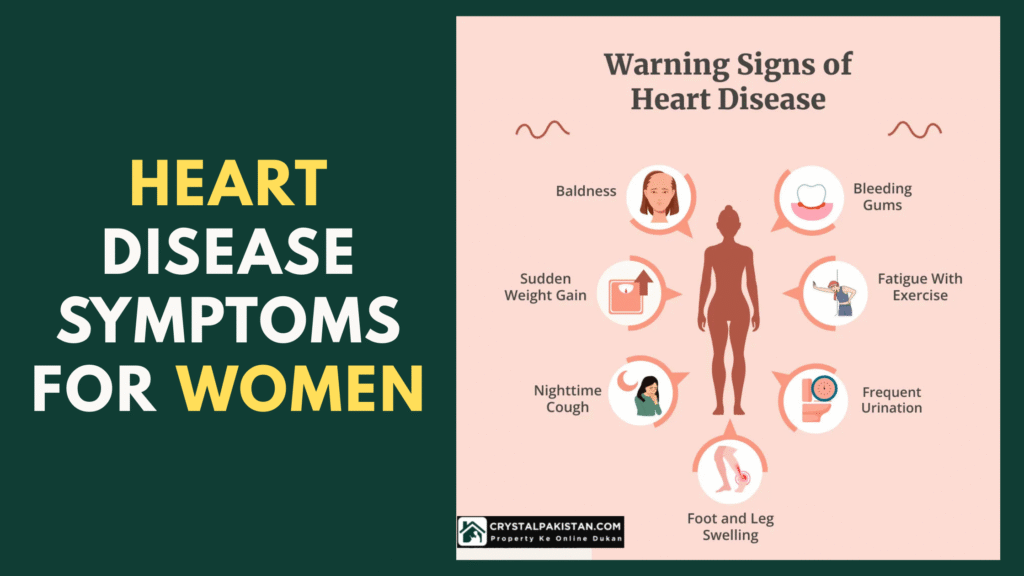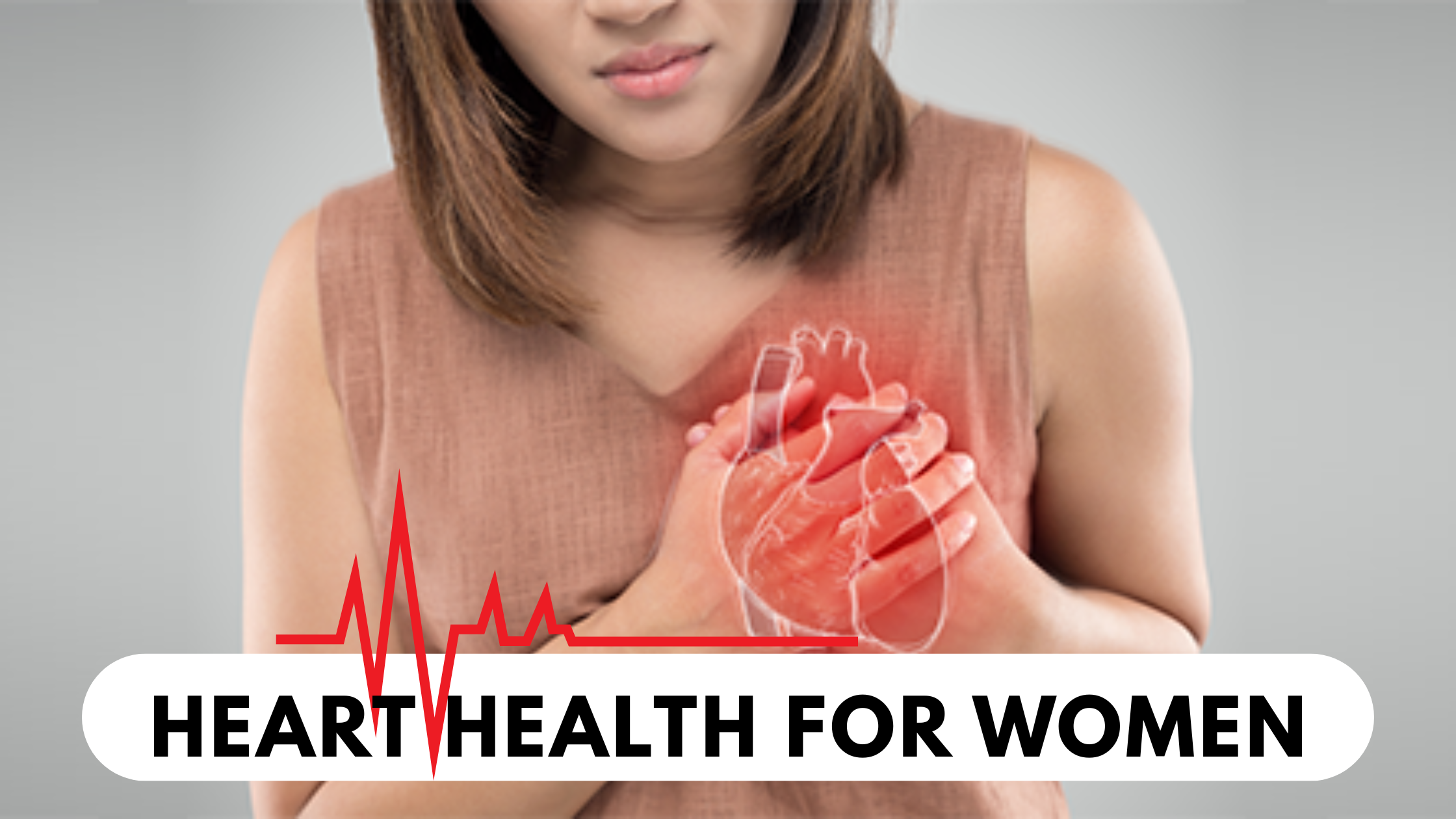Heart health for women is at more risk because it often goes unnoticed. This blog reveals the silent risks, early warning signs, and prevention tips for every woman should know to keep her heart strong and healthy.
Heart disease stands as the leading killer of women worldwide, yet its warning signs often go unrecognized and misunderstood. Women frequently experience subtler symptoms, like jaw pain, fatigue, and nausea, that differ from the typical chest pain seen in men. On top of that, systemic gaps in diagnosis and treatment, especially in South Asian countries.
Almost 44% of women only recognize that heart disease is one of the leading causes of women’s death. So, creating awareness and prevention is more urgent about heart health for women.
In this blog, you’ll explore the unique risks women face, understand how age, hormones, and societal factors impact their heart health, and uncover research-backed prevention tips just for women.
Why Heart Health Matters More for Women
While both men and women face heart disease, studies show that heart health for women have more concerns:
- Experience subtle symptoms like fatigue, dizziness, or nausea rather than crushing chest pain.
- Develop heart complications after menopause due to hormonal changes and reduced estrogen protection.
- Ignore early warning signs, mistaking them for stress, indigestion, or anxiety.
Heart disease is one of the non-communicable diseases that are causing damage to mankind and are being treated in NCD Clinics in Pakistan. Being proactive about heart health can lower your risk, improve quality of life, and even save your life.
Also Read: 5 Non-Communicable Diseases Treated Free at NCD Clinics in Pakistan
Early Signs of Heart Problems in Women

Unlike men, heart health for women is a bit different. They often experience atypical symptoms. Some common warning signs include:
- Shortness of breath or sudden fatigue
- Pain in the jaw, neck, shoulder, or back
- Nausea, dizziness, or cold sweats
- Chest discomfort (not always severe pain)
- Swelling in legs, feet, or abdomen
If you experience these symptoms persistently, consult a healthcare professional immediately.
Key Risk Factors Women Should Watch
Heart disease is the leading cause of death for women worldwide, but many of its risk factors can be managed with awareness and lifestyle changes. Unlike men, women face some unique challenges due to biological, hormonal, and social factors that impact cardiovascular health. Below are the major risks regarding heart health for women.
High Blood Pressure and Cholesterol
Hypertension (high blood pressure) and elevated LDL cholesterol are two of the strongest predictors of heart health for women. Women with untreated hypertension are more likely to develop coronary artery disease, stroke, and heart failure. Regular monitoring, a heart-healthy diet, and prescribed medications when needed can help keep blood pressure and cholesterol under control.
Diabetes
According to the American Heart Association, diabetes poses a higher risk for women than men because it damages blood vessels and reduces the protective effect of estrogen. Women with type 2 diabetes are significantly more likely to experience silent heart attacks, making early screening and glucose management critical.
Obesity (Especially Belly Fat)
Excess abdominal fat is directly linked with metabolic syndrome, a condition that increases blood pressure, blood sugar, and cholesterol levels. Women carrying weight around the waist are more prone to atherosclerosis and cardiovascular complications. Maintaining a balanced diet and active lifestyle helps reduce this risk.
Menopause & Hormonal Shifts
After menopause, estrogen levels drop, and this hormone loss reduces vascular flexibility and protection against plaque buildup. Postmenopausal women often see a rise in LDL (“bad” cholesterol) and blood pressure, making them more vulnerable to heart attacks. Hormone changes, combined with aging, highlight the importance of regular cardiovascular checkups during this stage.
Smoking
Cigarette smoking has a greater impact on women’s cardiovascular health than men’s. Studies show women who smoke are 25% more likely to develop heart disease compared to male smokers. Smoking damages blood vessels, reduces oxygen in the blood, and accelerates the formation of clots, greatly raising the risk of heart attack and stroke.
Stress & Depression
Psychological factors such as chronic stress, anxiety, and depression affect women’s heart health more severely than men’s. Stress hormones like cortisol raise blood pressure and blood sugar, while depression is linked to poor lifestyle habits and lower adherence to treatment. Incorporating stress management techniques such as yoga, mindfulness, or therapy can greatly benefit cardiovascular wellness.
Family History of Heart Disease
Genetics play a strong role in cardiovascular risk. Women with a family history of early heart disease (before age 65 in female relatives or 55 in male relatives) face a higher chance of developing the condition themselves. While you can’t change your genes, regular screenings and preventive care can help manage inherited risks.
Prevention Tips: How Women Can Protect Their Heart Health
Nearly 80% of heart disease is preventable with the right lifestyle changes. By making mindful choices, heart health for women can significantly improved and protect their heart for years to come. Here’s how:
Eat a Heart-Healthy Diet
Your heart thrives on proper nutrition.
- Fill your plate with fruits, vegetables, leafy greens, whole grains, lean proteins, and omega-3 rich foods like salmon or chia seeds.
- Cut down on processed foods, trans fats, excessive sugar, and refined carbs, which contribute to plaque buildup in arteries.
- Try the Mediterranean diet or DASH diet, both proven to reduce heart disease risk.
Stay Active and Keep Moving
Regular physical activity strengthens your heart muscle and improves circulation.
- Aim for at least 150 minutes of moderate-intensity exercise weekly.
- Great options include brisk walking, cycling, dancing, swimming, or even yoga.
- Add strength training 2–3 times per week to maintain muscle health and boost metabolism.
Manage Stress Effectively
Chronic stress and anxiety directly affect women’s cardiovascular health.
- Practice mindfulness, deep breathing exercises, journaling, or meditation to calm your nervous system.
- Schedule time for self-care, hobbies, and adequate sleep.
- Build a strong support system, talking with friends or a counselor can reduce the emotional burden.
Monitor Blood Pressure & Cholesterol Regularly
Silent conditions like high blood pressure (hypertension) and high cholesterol can go unnoticed but cause lasting heart damage.
- Get regular blood pressure, cholesterol, and blood sugar checkups at your doctor’s office.
- Track your numbers at home with a digital blood pressure monitor.
- Early detection allows treatment before serious complications arise.
Quit Smoking & Limit Alcohol
- Smoking is one of the most dangerous, preventable risk factors for women’s heart disease. Quitting immediately lowers heart attack risk.
- Keep alcohol away from your life because excessive drinking raises blood pressure and weakens the heart muscle.
Maintain a Healthy Weight
Carrying excess body weight, especially belly fat, increases the risk of high blood pressure, diabetes, and heart disease.
- Aim for a balanced diet and regular exercise routine to manage weight effectively.
- Don’t chase crash diets; instead, focus on sustainable lifestyle changes.
- Even a 5–10% weight loss can significantly improve cardiovascular health.
FAQs
How to prevent heart disease in women?
Women can prevent heart disease by adopting a heart-healthy lifestyle, including a balanced diet rich in fruits, vegetables, and omega-3s, regular exercise, avoiding smoking, managing stress, and monitoring blood pressure and cholesterol.
What are the signs of heart problems in women?
Unlike men, women often experience silent heart attack symptoms such as fatigue, nausea, dizziness, shortness of breath, or discomfort in the jaw, neck, or back, rather than the classic sharp chest pain.
How to take care of your heart as a woman?
To maintain women’s cardiovascular health, eat nutrient-dense foods, exercise for at least 30 minutes daily, practice stress reduction, and schedule routine cardiac health checkups.
How to improve heart health quickly?
Quick ways to boost heart health include cutting back on salt and sugar, drinking more water, walking daily, practicing deep breathing or meditation, and choosing whole foods over processed snacks.
How to take care of a woman’s heart?
By addressing women-specific risks such as hormonal changes after menopause, prioritizing self-care, staying active, and following preventive screenings, women can significantly improve long-term cardiac wellness.
Bottom Line
The fight against heart disease in women requires more than a single approach, it demands awareness of the distinct risks women face and action tailored to meet those challenges. Studies from Pakistan reveal women often endure delayed diagnoses, greater mortality, and more severe symptoms than men. However, small, consistent steps, like checking your blood pressure, staying active, monitoring sleep, and leaning on social support, can make a significant difference. Prioritizing your heart isn’t just smart, it’s lifesaving. Whether it’s understanding your risk during pregnancy, embracing menopause transition, or simply staying active, every step counts. Commit to the changes today, because nurturing your heart means investing in a stronger, healthier future.



Join The Discussion